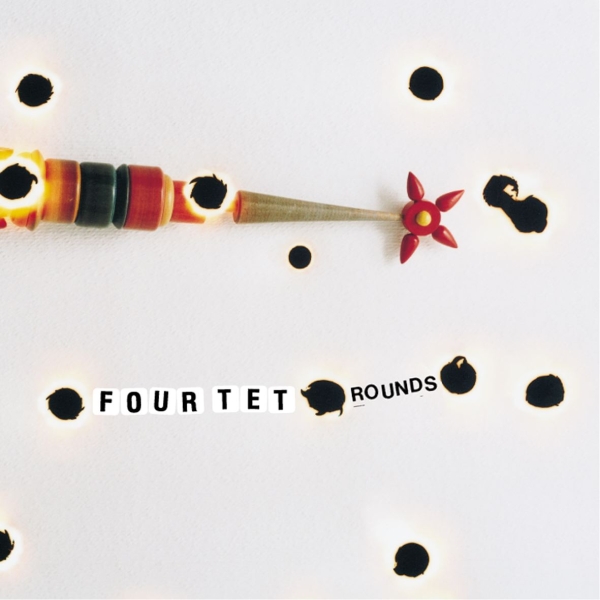I remember the kinds of people I knew ten years ago who enjoyed Four Tet. They weren’t bad – not by any stretch of the imagination – but they certainly conformed to a type. Determinedly wearing out the cargo pants they’d bought during the strange End of History and End of Aesthetic and Fashion History Too that we usually call ‘the late 1990s’, they’d collar you at parties and start long, earnest conversations about Mogwai and Godspeed and various other acts on Kranky and Constellation that have since been forgotten.
To those people, Four Tet was less to do with the culture of electronic music than with the accessible experimentalism of mainstream post-rock. In fact, what Kieran Hebden produced under the moniker fulfilled a similar social function to, say, Sigur Ros, and could be listened to in complete disregard of any consideration of the club music which had honed its potentialising technology. In fact, the most negative account of Hebden’s work from that time might portray it as a domestication, even a privatisation, of electronic music which had until that point served as the occasion for a particular kind of communal experience. It sat at the classier end of chill-out, a sort-of-genre which captured the false sense of economic and political security which for many characterised the turn of the Millennium.
Despite the fact that it was released the best part of two years after 9/11 and the explicit disabusing of that fantasy of historical resolution, a first trip back to Rounds may well confirm that suspicion. In places, its floppy, unbothered beats make those Boards Of Canada were using in a similar period seem like typifications of rhythmic and timbral unease, and the use of sampled instruments appears to gesture towards a model of the organic which reflects the depoliticised humanism of the time. Several tracks are particularly stamped with periodicity. The hard-treading funk of ‘Unspoken’, for example, is overlaid with a piano motif which does little more than conjure an over-easy melancholy, while ‘As Serious As Your Life’ has more than a touch of smugness.
Perhaps, though, there’s something a little bit more prescient about Rounds than one might immediately think. Its most famous song, ‘She Moves She’, all limber drums and holiday-show guitars is over-familiar from TV soundtracks, but its sunny surface conceals something more troubled. Listening closely, there’s a slightly choppy edge to the rhythms, and the mesmeric glitch section at the end sounds not unlike something from Actress’ R.I.P., one of 2012’s most bleakly nervous records. Likewise, ‘My Angel Rocks Back And Forth’ at first attracts attention thanks to its pretty, twinkling melody, but this, one comes to realise, is strung across yawning rhythmic voids of the kind found in Hebden’s later collaborations with Burial. The effect is a little like chancing upon a still-functioning music box in the middle of some gigantic karst system.
Nothing on the album speaks to the uncertain future quite so much as ‘Spirit Fingers’, though. Here, a caffeinated, sped-up sample is looped over an insistent, neurotic single-cymbal tic. It’s the most potent indicator on Rounds of what Hebden would go on to do, a piece which senses in the midst of the Blair years the kernel which would open out into the Children Of Men theme park of 2013 Britain. Many speak of Four Tet as marking a softening and deceleration of electronic music, and this isn’t entirely untrue, but there’s much more to this record than agreeable eclecticism: what might initially have sounded like post-historical playfulness can now be read as an intuition of menace.


